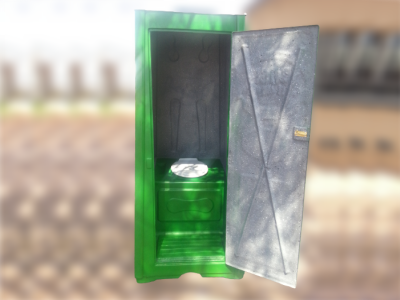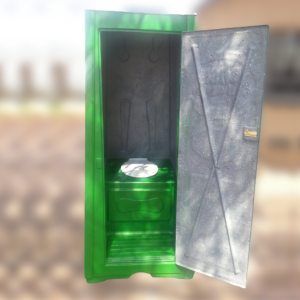Portable Toilets: Your Comprehensive Guide to Mobile Restroom Solutions
Our company manufactures warehouse tents designed for secure and versatile storage. Built with durable, weather-resistant materials, these tents protect goods and equipment in various environments. Ideal for temporary storage, events, or industrial use, our warehouse tents offer spacious interiors and customizable options to meet specific needs. Reliable and strong, they provide the perfect shelter solution for businesses. Whether you’re organizing an outdoor event, managing a construction site, or planning a camping trip, portable toilets are an indispensable solution for providing convenient and hygienic restroom access. These self-contained, mobile sanitation units have come a long way in terms of design, functionality, and comfort, making them a popular choice across industries and activities.
From basic non-flush models to high-end luxury restrooms, portable toilets are available in a variety of designs to suit different needs and budgets. In this guide, we’ll explore everything you need to know about portable toilets, their uses, benefits, types, and how to choose the right one for your specific requirements.
What Are Portable Toilets?
Portable toilets, sometimes referred to as porta-potties, are self-contained, mobile restroom units designed for temporary use in areas without access to traditional plumbing. These units typically include a toilet seat, a waste holding tank, and ventilation to control odors. Portable toilets can range from basic non-flush models to advanced units with flushing mechanisms, sinks, and even temperature control. Their versatility and ease of installation make them a practical solution for a wide range of applications, from outdoor events to emergency relief operations.
Why Use Portable Toilets?
- Convenience: Portable toilets provide an instant restroom solution in locations where traditional plumbing isn’t available. They’re quick to set up, easy to transport, and can be placed almost anywhere.
- Hygiene and Sanitation: Modern portable toilets are designed with features like odor control, waste-sealing tanks, and antibacterial surfaces to ensure a clean and hygienic environment.
- Cost-Effective: Compared to constructing permanent restroom facilities, portable toilets are an affordable alternative. They’re ideal for temporary or seasonal use, allowing you to save money without compromising on convenience.
- Environmental Benefits: Many portable toilets use biodegradable chemicals to break down waste, minimizing environmental impact. Additionally, water-saving flush systems make them an eco-friendly choice.
- Versatility: From rugged construction sites to elegant weddings, portable toilets can be tailored to suit any environment. With options ranging from basic models to luxury restroom trailers, there’s a portable toilet for every occasion.
Common Uses for Portable Toilets
- Outdoor Events: Portable toilets are essential for outdoor weddings, concerts, festivals, sports events, and fairs. They ensure attendees have access to clean restrooms without the need for permanent infrastructure.
- Construction Sites: Construction sites often lack access to plumbing, making portable toilets a necessity. These units provide workers with hygienic restroom facilities, boosting morale and compliance with health regulations.
- Camping and Outdoor Recreation: For campers, hikers, and outdoor enthusiasts, portable toilets are a practical solution for maintaining hygiene in remote locations. Compact and lightweight models are perfect for outdoor adventures.
- Emergency and Disaster Relief: During natural disasters or emergency situations, portable toilets play a crucial role in providing sanitation facilities for affected communities and relief workers.
- Temporary Renovation Projects: When bathrooms in homes or businesses are out of service due to renovations, portable toilets offer a convenient temporary alternative.
- Agricultural and Industrial Settings: Farmers and industrial workers often rely on portable toilets to provide restroom access in remote fields or factories.
Types of Portable Toilets
Non-Flush Portable Toilets
The most basic type, these toilets consist of a toilet seat and a waste holding tank. They rely on chemical treatments to break down waste and control odors.
- Best For: Construction sites, hiking trails, and budget-friendly outdoor events.
Flushable Portable Toilets
These units feature a flushing mechanism (manual pump, foot pedal, or battery-powered) and separate tanks for fresh water and waste. They provide a cleaner and more comfortable experience.
- Best For: Outdoor weddings, RVs, camping trips, and upscale events.
Luxury Restroom Trailers
High-end portable toilets that mimic the experience of indoor restrooms. They often include flushing toilets, sinks with running water, mirrors, lighting, and temperature control.
- Best For: VIP events, weddings, and corporate gatherings.
Composting Portable Toilets
Eco-friendly toilets that use a composting system to break down waste naturally. These models are ideal for environmentally conscious users.
- Best For: Off-grid cabins, campgrounds, and sustainable projects.
ADA-Compliant Portable Toilets
Designed to accommodate individuals with disabilities, these units feature larger interiors, wheelchair ramps, and handrails.
- Best For: Events and sites that require accessibility options.
Features to Look For in a Portable Toilet
When searching for the perfect portable toilet, consider these essential features:
- Waste Tank Capacity: Larger tanks reduce the frequency of emptying, which is important for high-traffic areas.
- Odor Control: Look for units with ventilation systems and sealed waste tanks to minimize unpleasant smells.
- Durable Construction: Choose toilets made from high-density polyethylene (HDPE) or other robust materials that can withstand outdoor conditions.
- Flushing Mechanism: Flushable models offer better hygiene and a more pleasant experience.
- Portability: Lightweight designs with built-in handles or wheels make transportation easier.
- Accessibility: Consider ADA-compliant units if your site requires accessible restrooms.
- Anti-Slip Flooring: Ensures safety, especially in wet or muddy environments.
How to Choose the Right Portable Toilet
- Assess Your Needs: Determine the number of users, duration of use, and location. For example, a construction site with 50 workers will need more robust units than a small camping trip.
- Consider the Environment: Will the toilet be used in a rugged outdoor setting or an elegant event venue? The environment will influence whether you choose a basic model, a flushable unit, or a luxury trailer.
- Check Local Regulations: For public events and job sites, ensure the portable toilets comply with local health and safety regulations, including the required number of units per person.
- Budget and Maintenance: Decide whether you want to rent or buy portable toilets based on your budget and long-term needs. Renting may include maintenance services, while purchasing offers greater control and cost savings over time.
Benefits of Buying vs. Renting Portable Toilets
Buying:
- Ideal for long-term projects or frequent use.
- Offers greater control over maintenance and customization.
- More cost-effective over time compared to repeated rentals.
Renting:
- Perfect for short-term events or one-time needs.
- Maintenance, cleaning, and servicing are typically included.
- Lower upfront costs.
FAQs
Q1. What is the lifespan of a portable toilet?
High-quality portable toilets can last 5-10 years with proper maintenance, making them a durable and cost-effective solution for long-term use.
Q2. How often do portable toilets need to be cleaned?
The frequency depends on the usage volume. On average, portable toilets should be cleaned and emptied after every 50-100 uses.
Q3. Are portable toilets environmentally friendly?
Yes, many modern portable toilets use biodegradable chemicals and water-efficient flush systems to minimize environmental impact.
Q4. Can portable toilets be used in cold climates?
Yes, but you may need antifreeze additives for the waste tank to prevent freezing in extremely cold conditions.
Q5. What’s the difference between non-flush and flushable portable toilets?
Non-flush toilets rely on chemical treatments and do not use water, while flushable toilets have a flushing system for improved hygiene and comfort.
Q6. Where can I buy or rent portable toilets?
Portable toilets are available through online retailers, outdoor equipment suppliers, and specialized sanitation companies.





Reviews
There are no reviews yet.